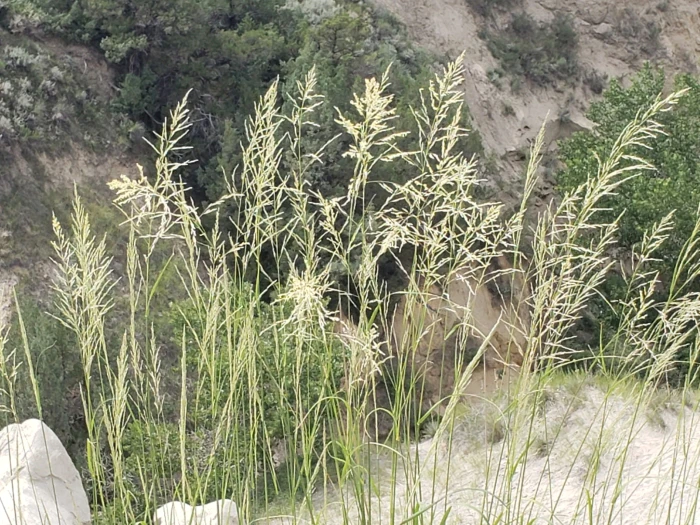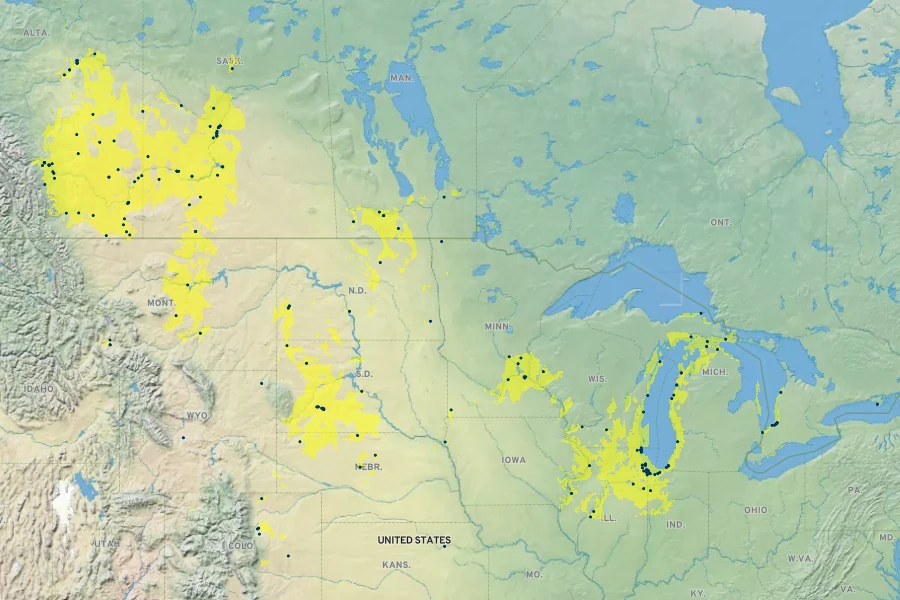Prairie Sandreed
/
(Sporobolus rigidus)
Prairie Sandreed (Sporobolus rigidus)
/

© egreten
CC BY 4.0
Image By:
© egreten
Recorded By:
Copyright:
CC BY 4.0
Copyright Notice:
Photo by: © egreten | License Type: CC BY 4.0 | License URL: http://creativecommons.org/licenses/by/4.0/ | Uploader: egreten | Publisher: iNaturalist |























Summary
Sporobolus rigidus, commonly known as Prairie Sandreed, Rigid Dropseed, Rigid Sporobolus, or Rigid Rushgrass, is a perennial grass that is indigenous to a variety of habitats including grasslands, open woodlands, and coastal dunes in North America. It typically grows to a height of 1.5-2.5 feet (0.46-0.76 meters) and is characterized by its stiff, upright growth habit and fine-textured foliage. The plant produces inconspicuous greenish flowers during the summer months, which are followed by small, hard seeds that contribute to its spread.
Prairie Sandreed is valued for its drought tolerance and ability to stabilize soil, making it an excellent choice for erosion control in sandy areas. It is also used in naturalistic plantings and as a low-maintenance ground cover in xeriscapes. This grass thrives in full sun and is adaptable to a range of soil types, preferring medium to fast-draining sandy or loamy soils. It is adapted to arid environments. While generally disease-free, it can occasionally suffer from rust in humid conditions.CC BY-SA 4.0
Prairie Sandreed is valued for its drought tolerance and ability to stabilize soil, making it an excellent choice for erosion control in sandy areas. It is also used in naturalistic plantings and as a low-maintenance ground cover in xeriscapes. This grass thrives in full sun and is adaptable to a range of soil types, preferring medium to fast-draining sandy or loamy soils. It is adapted to arid environments. While generally disease-free, it can occasionally suffer from rust in humid conditions.CC BY-SA 4.0
Plant Description
- Plant Type: Grass
- Height: 1.5-2.5 feet
- Width: 2-3 feet
- Growth Rate: Moderate
- Flower Color: N/A
- Flowering Season: Summer
- Leaf Retention: Evergreen
Growth Requirements
- Sun: Full Sun
- Drainage: Fast, Medium
Common Uses
Bird Garden, Deer Resistant, Drought Tolerant, Erosion Control, Low Maintenance
Natural Habitat
Native to grasslands, open woodlands, and coastal dunes
Other Names
Common Names: Rigid Dropseed, Rigid Sporobolus, Rigid Rushgrass
Scientific Names: Sporobolus rigidus, Vilfa rigida
GBIF Accepted Name: Sporobolus rigidus
